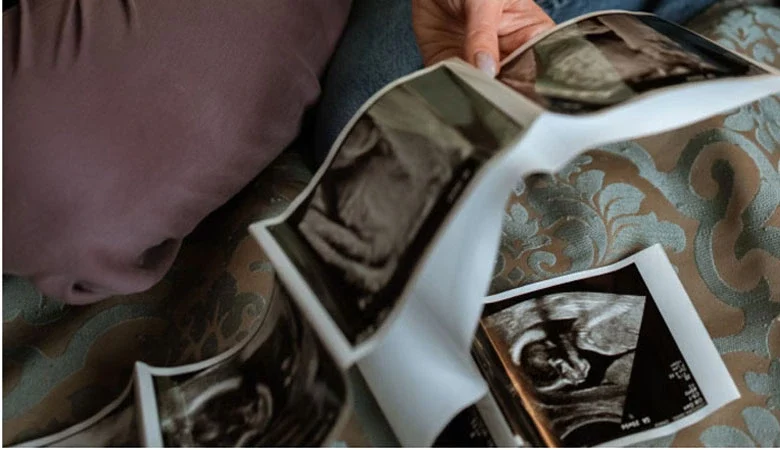What to Expect From Your 5-week-old Baby
- Your 5-week-old Baby
-
- UPDATED MARCH 22, 2024

by Tasha Mayberry
430 shares
You’re probably very excited now that you can quote your baby’s age in months. Finally, right? They’re officially a-month-and-a-week-old now, and you must agree – that in itself, is already a huge milestone.
There is one vital thing to remember at this stage: Each child is unique in their own little way – this includes their growth and development patterns. What does this mean? Your bubba will not behave nor develop EXACTLY as the books or guides say. Nor do they develop the same way as the neighbours’ baby of the same age.
Guides exist to serve as their name implies – guides. Use it to gauge if your baby is on track, but don’t panic if your baby is not exactly as the guidebook says. The bottom line is, if your health practitioner is happy with your child’s development, you also should!
The first five weeks presents a lot of changes in your baby. To give you a head’s up on what to expect, we have listed some of them below.

Communication
Yes, you read that right. A 5-week-old will, by now, have started to make some complex facial expressions. You can now spot a smile on their face and, at times, mimic your facial expressions as well.
Researchers have found a critical connection to baby talk – including coos, grunts, and gurgles – as part of their language development and their ability to grasp words. It’s too early for them to talk at this stage, but it’s equally important to take note of their efforts and grow their instincts.
Spending enough time with them and responding to their vocal expressions is a great way to communicate with your 5-week-old. Talk to them about the world around them by bringing them outdoors and describing the surroundings to them. This will also help with their eyesight because, during this stage, they readily spot objects that interest them, especially at a near distance.
Sleep
Sleep is an essential part of your infant’s development. By this time, you may have noticed that your child is spending more time awake during the day as compared to a few weeks earlier. A 5-week-old baby will typically spend 12 – 14 hours asleep in a day, with unevenly spaced feeding sessions in between. Adults have been accustomed to a fully developed circadian rhythm, observing the 24-hour cycle, keeping them fully awake during the day and asleep at night. Your 5-week-old, on the other hand, is yet to attain this. But the fifth-week mark is the perfect time to start sleep training, which will eventually turn into the desired sleeping pattern over time.
You will, therefore, need to create a favourable sleep environment for your infant – always remembering to ensure they sleep on their back. This is recommended to avoid the occurrence of the rather unfortunate but common Sudden Infant Death Syndrome (SIDS). A crib or a Moses basket is usually recommended as a safe place for the baby to sleep in at night or during the daytime.
If you tend to do a lot around the house during the day, you may want to consider getting a pack and play. This will allow you to watch over the baby within reach while she safely plays, and you carry out your other chores.
Weight
The average weight for a full-term 5-week-old is just over 9 lbs for both boys and girls alike. Remember, the operative word is AVERAGE. Your baby may weigh more or less than this. But again, as long as their weight is not too far off, there is no need to panic. You are doing a great job as their parent!
In saying that, your baby’s feeding habits play a crucial role in their weight gain – or loss. At the five-week mark, your baby may already be learning to adjust to their feeding routine. If you are exclusively breastfeeding, you will notice that your baby will be latching on to you longer and having more consistent feeds. If your baby is bottle-fed, you may need to increase the amount of formula you offer them. Let your baby guide you as to the amount – it’s okay if they don’t finish their bottle, and it’s equally okay if they want more.
If you are concerned about your baby’s feeding or weight at any point, do not hesitate to get advice from your healthcare provider.
Movement and Stability
Your baby is most likely starting to hold their head up at an angle (around 45 degrees) while doing tummy time. Speaking of tummy time, these are a great way of encouraging your baby to support themselves and their head. It also allows them to develop gross motor skills needed for when they eventually start walking and standing. Make it more fun by introducing age-appropriate baby toys. Activity mats are great for this as they double as the tummy time area and a toy.
A little grumpy? – It's okay!
By their fifth week, babies are slowly becoming more aware of themselves and their surroundings. They are also developing new skills, like the ones listed above. These changes can cause their mood to become unstable, and they become fussier and easily irritable. It’s a common occurrence and should not worry you unless your baby is excessively fussy throughout the day.
Experts describe this 5th-week fussy period as the “wonder week”. The good news is that in a couple of weeks or so this too shall pass. Use this time to develop a stronger bond and make them feel safe and loved around you and the rest of the family.Some things you can do to ease your grumpy 5-week-old are:
Spend time playing by engaging in some form of “peek-a-boo” to encourage him to move his head side by side.
- Holding objects at least 45cm away for him to exercise his eyes.
- A foot and hand massage may help soothe and calm the cranky baby.

Before you go, remind yourself again that your bubba is unique in her own way, and will develop at her own pace. Unless it’s something really extreme and too far off the expected milestone, there is no reason for you to be alarmed. Instead, take this time to enjoy every moment with your baby – they won’t be that little for long.